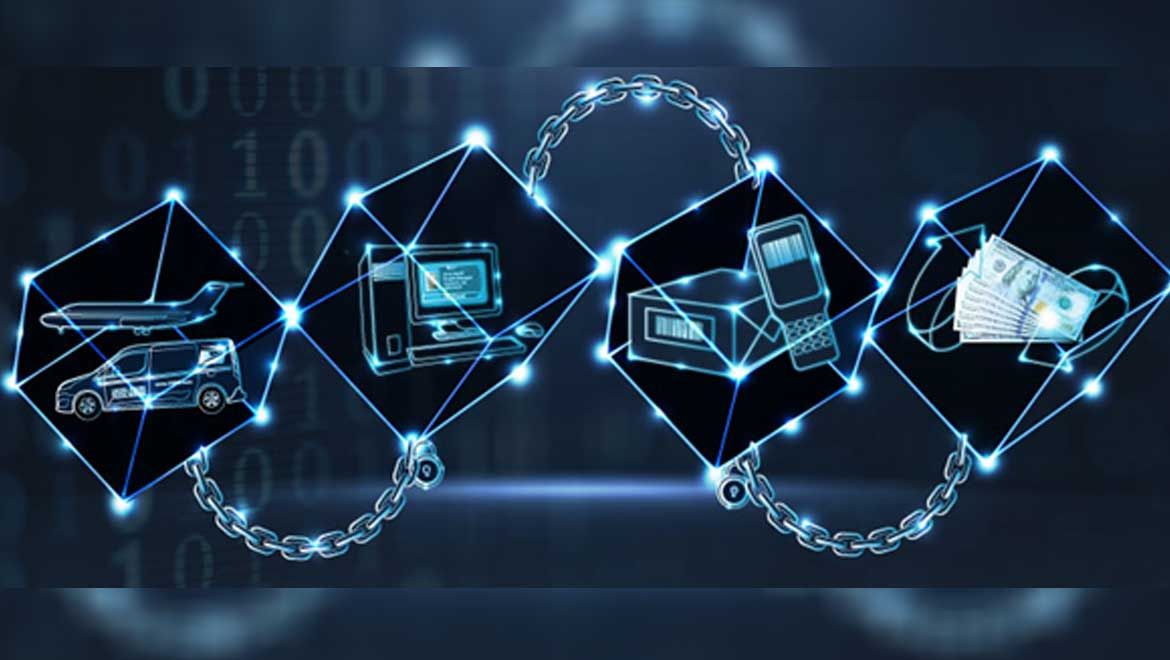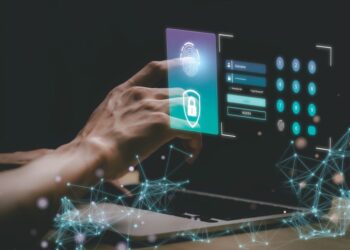When most people hear the word “blockchain,” their minds immediately leap to the volatile world of cryptocurrencies like Bitcoin and Ethereum. For years, the two have been inextricably linked in the public consciousness. But to see blockchain only through the lens of digital currency is like looking at the internet and seeing only email. It’s a foundational, game-changing technology whose true potential is only just beginning to be harnessed across nearly every industry imaginable.
At its core, a blockchain is a distributed, immutable, and transparent digital ledger. Think of it as a shared digital notebook that is duplicated and spread across a vast network of computers. Once a transaction or piece of data is entered into this notebook, it is linked to the previous entry, creating a “chain.” This entry is verified by the network and, once approved, can never be altered or deleted. This simple yet revolutionary concept of a decentralized, single source of truth is the key that unlocks a universe of possibilities far beyond simple financial transactions.
This article delves into the profound and transformative applications of blockchain technology that are actively reshaping our world. We will move past the hype of cryptocurrency to explore how this powerful innovation is revolutionizing everything from the food you eat to the way you vote, from protecting your personal health data to verifying the authenticity of luxury goods. Prepare to discover the real blockchain revolution—a quiet but powerful movement building a more transparent, secure, and efficient future for everyone.
The Core Principles: Why Blockchain is a Game-Changer
To understand blockchain’s vast potential, one must first grasp the three core principles that make it so unique and powerful. These pillars work in concert to create a system that is fundamentally different from any traditional database or ledger.
A. Decentralization: Unlike a traditional database that is stored on a central server owned by a single entity (like a bank or a government), a blockchain’s data is distributed across thousands of computers worldwide. This decentralization means there is no single point of failure. A hacker cannot take down the network by attacking one server, and no single corporation or authority can control or manipulate the data for their own benefit.
B. Immutability: The term “immutable” simply means unchangeable. Once data is recorded on a blockchain, it is cryptographically sealed. Each new block of data is mathematically linked to the one before it. To alter a single piece of information, one would have to alter every subsequent block on the majority of the computers in the network—a task that is considered practically impossible. This creates a permanent and tamper-proof record of events.
C. Transparency: While user identities can remain pseudonymous, the transactions themselves are typically transparent to all participants on the network. In a supply chain, for example, a manufacturer, a shipper, and a retailer can all view the same ledger, providing unprecedented visibility into the journey of a product. This shared access builds trust, as all parties are working from the same, unalterable set of facts.
A crucial element that brings these principles to life is the Smart Contract. A smart contract is a self-executing contract with the terms of the agreement written directly into lines of code. These contracts automatically execute and enforce themselves when predetermined conditions are met, eliminating the need for a traditional intermediary. For instance, a smart contract could automatically release payment to a supplier the moment a shipment’s arrival is verified on the blockchain.
Use Case 1: Revolutionizing Global Supply Chain Management
The modern supply chain is a complex web of suppliers, manufacturers, transporters, and retailers. This complexity often leads to inefficiency, a lack of transparency, and vulnerability to fraud and counterfeiting. Blockchain technology is emerging as the ultimate solution to these deep-seated problems.
Imagine tracking a head of lettuce from the farm to the grocery store. With a traditional system, this information is stored in separate, private databases at each step, making it difficult to trace the source of a foodborne illness outbreak quickly. With blockchain, every step of the journey—planting, harvesting, shipping, and stocking—is recorded as a transaction on an immutable ledger. If an outbreak occurs, officials can instantly scan a product’s QR code and trace its exact origin in seconds, not weeks, saving lives and preventing widespread recalls.
Key Applications:
- Enhanced Traceability: Companies like IBM Food Trust are partnering with giants like Walmart to track food products from farm to shelf, ensuring food safety and authenticity.
- Combating Counterfeiting: The luxury goods and pharmaceutical industries are plagued by counterfeits. By attaching a unique digital identity to each product on the blockchain, consumers can easily verify the authenticity of a designer handbag or a life-saving medication with a simple scan. De Beers, the diamond company, uses a blockchain platform to track diamonds and prevent the trade of conflict “blood diamonds.”
- Automated Efficiency: Smart contracts can automate countless processes. A shipment’s arrival at a port can automatically trigger a payment to the logistics company and notify the next carrier in the chain, reducing paperwork, delays, and human error.
Use Case 2: Securing and Empowering Healthcare
The healthcare industry is built on data, but this data is often fragmented across different hospitals, clinics, and insurance providers in siloed, incompatible systems. This creates inefficiencies and puts sensitive patient information at risk. Blockchain offers a new paradigm for managing health data with security and patient empowerment at its core.
A blockchain-based health record system would allow a patient to own and control their medical history. Instead of their records being scattered, they would hold the cryptographic key to a single, comprehensive record of their entire medical life. When visiting a new doctor or specialist, the patient could grant temporary, specific access to their records. This access is recorded on the blockchain, creating a transparent audit trail of who has viewed the information and when.
Key Applications:
- Unified Electronic Health Records (EHRs): A universal, patient-centric record system would eliminate the need for redundant medical tests and give doctors a complete picture of a patient’s health, leading to better diagnoses and treatments.
- Pharmaceutical Supply Chain Integrity: Similar to its use in other supply chains, blockchain can track drugs from the manufacturer to the pharmacy, guaranteeing that patients are not receiving counterfeit or tampered-with medications.
- Streamlining Insurance Claims: Smart contracts can automate the process of verifying and paying out medical insurance claims. Once a verified medical procedure is recorded on the blockchain, a smart contract could instantly process the claim according to the policy’s terms, drastically reducing administrative overhead and payment delays.
Use Case 3: Redefining Ownership with NFTs and Intellectual Property

Non-Fungible Tokens (NFTs) became famous for their use in digital art, but their underlying technology is about much more than just JPEG files. An NFT is a unique digital certificate of ownership for a specific asset, registered on a blockchain. This provides a public and verifiable way to prove who owns something, and it’s set to redefine intellectual property (IP) and asset ownership.
For musicians, this is revolutionary. Instead of relying on complex and often opaque royalty collection societies, an artist could mint a song as an NFT. A smart contract could be embedded within the NFT that automatically pays a percentage of every sale or stream directly to the artist, the producer, and the songwriter in real-time. This cuts out the middlemen and creates a direct, transparent relationship between creators and their earnings.
Key Applications:
- Intellectual Property and Royalties: Blockchain provides an immutable timestamped record of creation, helping to protect patents, trademarks, and creative works from infringement.
- Digital Identity: Individuals can manage their own digital identities, granting verifiable credentials to third parties without handing over control of their personal data.
- Tokenization of Real-World Assets: Assets like real estate and fine art can be “tokenized” and represented on a blockchain. This allows for fractional ownership, meaning someone could buy a small share of a commercial building, increasing liquidity and making high-value investments accessible to a wider audience.
Use Case 4: Enhancing Transparency in Voting and Governance
Trust is the cornerstone of any functioning democracy. Yet, many electoral systems are plagued by concerns about security, fraud, and a lack of transparency. Blockchain technology presents a powerful tool for building secure, transparent, and auditable voting systems.
In a blockchain-based voting system, each vote would be recorded as a unique, encrypted transaction on a distributed ledger. This would make it impossible for a vote to be altered, removed, or duplicated. Voters could be given a unique ID that allows them to anonymously verify that their vote was correctly recorded on the blockchain, providing a level of public auditability that is impossible with current systems. While still in experimental stages, cities like Zug, Switzerland, have trialed blockchain for municipal votes, showcasing the potential for this technology to enhance civic trust.
Key Applications:
- Secure and Transparent Elections: Creates a tamper-proof and publicly verifiable record of votes, reducing the potential for fraud and increasing public confidence in election results.
- Public Registries: Government functions like land title registries and business licenses could be moved to a blockchain, creating a secure, transparent, and incorruptible public record that is resistant to fraud and mismanagement.
The Hurdles on the Road to Mass Adoption
Despite its immense potential, the path to widespread blockchain adoption is not without its challenges. For this technology to become truly mainstream, the industry must overcome several significant hurdles.
A. Scalability: Early blockchains like Bitcoin can only process a handful of transactions per second, which is far too slow for global applications. While newer blockchains are much faster, the “blockchain trilemma”—the challenge of simultaneously achieving scalability, security, and decentralization—remains a key technical focus.
B. Energy Consumption: The “Proof of Work” consensus mechanism used by Bitcoin and other early blockchains requires immense computational power, leading to significant energy consumption. The industry is actively shifting towards more energy-efficient models like “Proof of Stake.”
C. Regulatory Uncertainty: Governments and regulatory bodies around the world are still grappling with how to approach blockchain technology. A lack of clear legal frameworks can deter businesses from investing in and adopting blockchain-based solutions.
D. Complexity and Integration: Integrating blockchain technology with existing legacy IT systems is a complex and expensive undertaking. Furthermore, a shortage of skilled blockchain developers makes implementation a significant challenge for many companies.
The Dawn of the Trust Economy

Blockchain technology is far more than the engine behind cryptocurrency; it is the architectural foundation for a new era of the internet—an era built on trust, transparency, and decentralization. It is a tool for disintermediation, capable of removing the traditional gatekeepers and intermediaries that introduce friction, cost, and opacity into our systems.
The journey is still in its early stages, and the technology will continue to evolve and mature. But the shift is undeniable. From ensuring the safety of our food to securing our most sensitive data and protecting the rights of creators, blockchain is quietly laying the groundwork for a more equitable, efficient, and trustworthy world. The true revolution is not being televised; it’s being coded, validated, and built, one block at a time.











